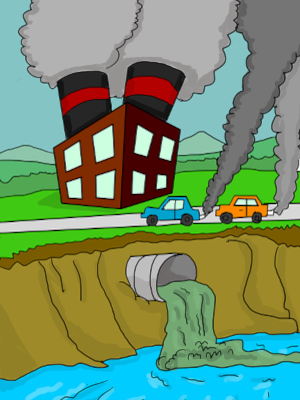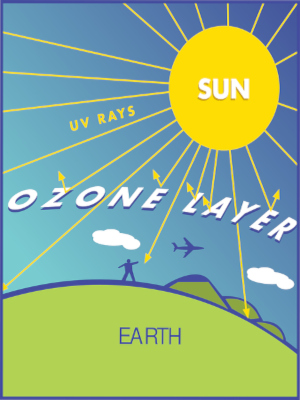Air plays a vital role in the survival of living organisms, including plants. This article contains five interesting facts about air.
Air is not just gas
Air is all around us. It is a mixture of different gases. The air in Earth’s atmosphere is made up of approximately 78 percent nitrogen and 21 percent oxygen. Air also has small amounts of other gases, such as carbon dioxide, neon, and hydrogen. Even though air is invisible, it is not solely composed of gas. In addition to being a mixture of various gases, it also contains numerous minuscule particles known as aerosols. While some aerosols, like dust and pollen, are naturally carried by the wind, others are pollutants that contribute to air pollution. These pollutants, including soot and smoke from car exhaust and power plants, can pose challenges for both plants and animals when there is an excessive amount of particles in the air.

Air pollution can ruin your outdoor plans
Air pollution has the potential to disrupt your outdoor activities. The Air Quality Index (AQI) measures the level of air pollution. A lower AQI indicates cleaner air, while a higher AQI signifies poorer air quality. When the AQI exceeds 100, being outdoors is akin to inhaling car exhaust fumes throughout the day. Factors such as forest fires and heavy traffic in urban areas contribute to deteriorating air quality. It is advisable to limit your time spent outside if the AQI surpasses 100.

The composition of the air changes when you go up
As you ascend higher and higher, the composition of the air undergoes a transformation. Although air may appear to be weightless, it exerts a significant force on the earth’s surface, known as air pressure. At sea level, you encounter elevated air pressure due to the entire atmosphere exerting its weight on you. Conversely, when you reach the top of a mountain, the force of air pushing against you diminishes, resulting in lower pressure. This alteration in pressure can lead to the sensation of your ears popping while taking off in an aircraft or ascending a hill in a vehicle.
Air protects the earth
The Earth’s atmosphere is enriched with air. This air acts as a shield, preventing extreme temperatures from affecting the Earth. Additionally, the presence of ozone, a distinct gas in the air, safeguards us from excessive sunlight. Moreover, the air in the atmosphere provides protection against meteoroids. As these meteoroids come into contact with our atmosphere, they encounter resistance from the air, often resulting in their combustion into smaller fragments prior to reaching the Earth’s surface.

Air can move fast and far
Air has the ability to travel swiftly and cover great distances. Even during calm weather conditions, the air surrounding us is constantly in motion. However, when a powerful wind occurs, the air can truly accelerate. The highest recorded speed of wind on Earth reached an astonishing 253 miles per hour (approximately 407 kilometers per hour). Furthermore, as the wind gathers up seeds, dust, and various particles, it has the capacity to transport them several miles away from their initial location.
Sources:
https://climate.nasa.gov/news/2491/10-interesting-things-about-air/#:~:text=Air%20is%20mostly%20gas&text=It’s%20a%20mixture%20of%20different,dioxide%2C%20neon%2C%20and%20hydrogen.
